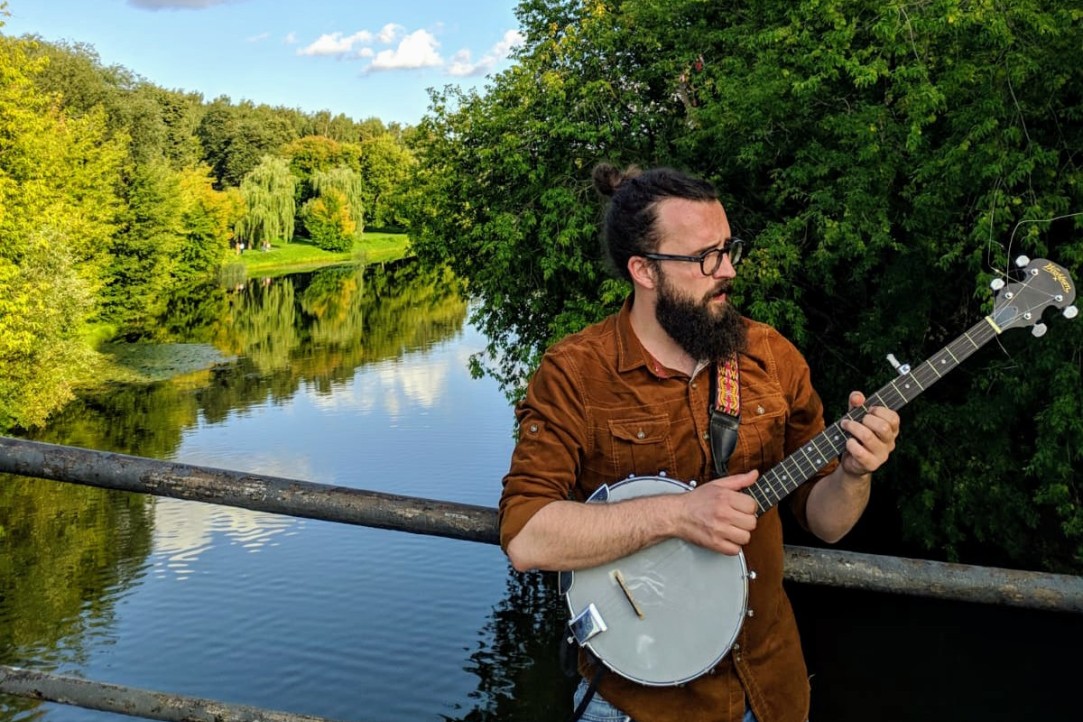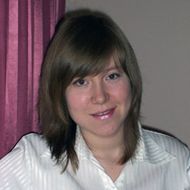‘What International Students Need to Bring with Them Is Courage and Curiosity’

‘I started learning Russian in Italy. I’ve lived in Moscow and St. Petersburg, but came to Nizhny Novgorod to learn Russian in “real” Russia and become an international journalist’: Alessandro Caglio, first-cohort graduate of the Master’s programme ‘Literature and Media’, speaks about intercultural communications, hypertext novels, and the Russian winter.
Alessandro got a bachelor’s degree in Interlanguage and Intercultural Mediation from the University of Insubria. He has always been interested in Russia, and admired Russian culture and Russian language, so after the International Summer School at HSE Nizhny Novgorod, he decided to come back and apply for the ‘Literature and Media’ programme.
His interests include Russian literature of the 20th and 21st century and playing the guitar and banjo. He composes music and writes poetry, and used to perform with the band ‘Sweet and Sour’ when he was a student. After his master’s programme, Alessandro aims to work as an international journalist outside his home country.
‘I believe that the image of Russia in the Italian media is not very accurate, and I would like to show my fellow countrymen that Russia is better and deeper than the image created and broadcast by our media’.
Alessandro came to the programme in Literature and Media in order to get the skills and experience of working with information in different media formats. Today, digital competencies are in demand not only in professional journalism, but in all areas related to creating and promoting media communication contents.
‘During my studies, I haven’t had one subject that I could call boring or useless’.
The topic of Alessandro’s thesis, which he defended with honours, was the hypertext novel—an understudied genre of electronic literature, which consists of a traditional text and a complex system of hyperlinks, which helps each reader to build their own variation of the story.
‘Since digital media can change the perception of reading, this is not a novel in the classical sense, but at the same time, it has as huge potential as a genre.’
Nelli Boryshneva, Academic Supervisor of the ‘Literature and Media’ programme, commented that the complicated topic of this thesis was ‘a kind of a challenge both for Alessandro and his academic supervisor, Prof. Marina Tsvetkova’.

Nelli Boryshneva
Academic Supervisor of the programme ‘Literature and Media’
‘Until recently, there had not been any research papers in Russian about the hypertext novel. Alessandro did a serious representative study of the different types of hypertext novels, referring to papers in English and Italian. It is rewarding that the attestation committee members supported his master’s thesis and recommended it for publication. It is likely that in the near future, electronic literature will become a new area of research interest for philologists at HSE in Nizhny Novgorod’.
During his studies, Alessandro not only immersed himself in Russian culture and learned more about the country’s specifics, but also participated in some social projects that he is really proud of.
As part of a project team, together with master’s student Arseny Vladimirsky, Alessandro created a video about inclusion and the accessible urban environment, dedicated to sledge hockey for children with disabilities. The project won a prize in a local university contest of social videos – ‘One Country – Accessible Environment’.
During the second year of his master’s studies, Alessandro helped develop an app for the State Gorky Museum as part of the ‘Participation Environment’ project together with the HSE Centre for Digital Cultures and Media Literacy, which was supported by Vladimir Potanin’s Charitable Foundation.
‘This app will help our visitors get detailed information on the museum exhibits,’ Larisa Motorina, Director of the State Gorky Museum, said, adding that such digital formats expand the museums’ capabilities considerably, making the exhibits accessible from anywhere in the world.
‘My first impression in Nizhny Novgorod was of Russian hospitality. This is a beautiful and very comfortable city for living. Despite the fact that Russians rarely smile compared to Europeans, they are much more open and are truly ready to help.
What surprises me is that Russians have a very uneven pace of life. In the streets, people move fast, like they are in a hurry, but in the stores, they can choose goods slowly and talk slowly. Also, Russians are capable of waiting patiently.
I enjoy studying Russian folklore, but I don’t really understand some of the proverbs. For example, what does it mean—“ne svisti – deneg ne budet”(don’t whistle, or you won’t have money)?!’
Alessandro bursts into laughter, strokes his beard and looks like he is tasting this phrase that sounds weird to him. At the same time, he mentions that Russians and Italians have a lot in common: they respect their traditions and are very superstitious at times.
After living in Russia for two years, Alessandro admits: ‘this country never stops surprising me’. The only thing Alessandro hasn’t got used to in his two years here is the harsh Russian winter.
‘I’m lucky, I can warm up with my creativity: I compose music, write poetry, play musical instruments, and love to work with Russian-language texts.'
Admissions to HSE’s Master’s programmes are open until August 14, 2020. International students can apply online. Graduate applicants can register for preliminary portfolio assessment.
To learn more about HSE University, its admission process, or life in Moscow, please visit International Admissions website, or contact the Education & Training Advisory Centre at: inter@hse.ru, or via WhatsApp at: +7 (916) 311 8521.
Nelli Boryshneva
Academic Supervisor of the programme ‘Literature and Media’
Marina V. Tsvetkova
Dean, Faculty of Humanities (Nizhny Novgorod)

